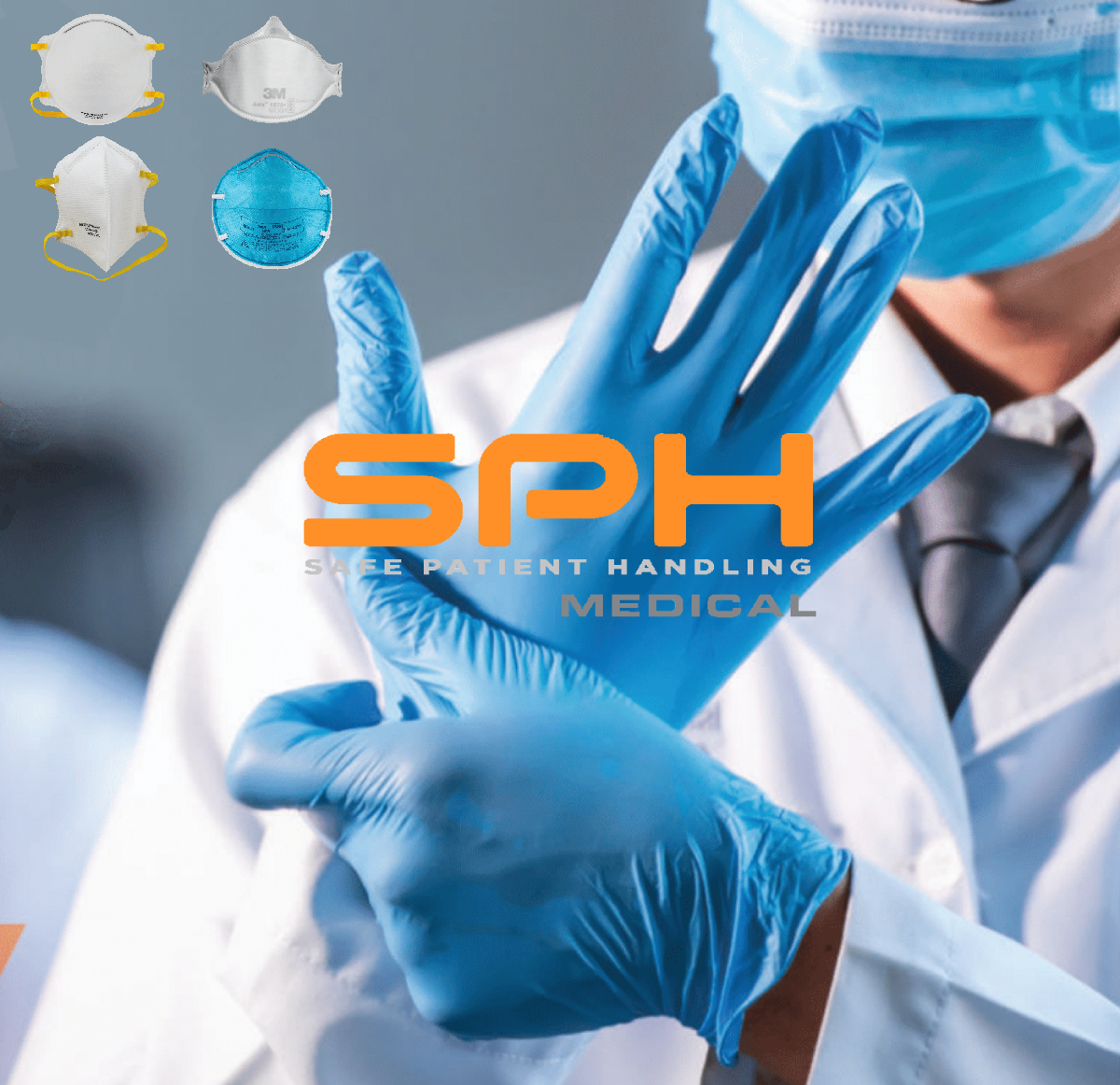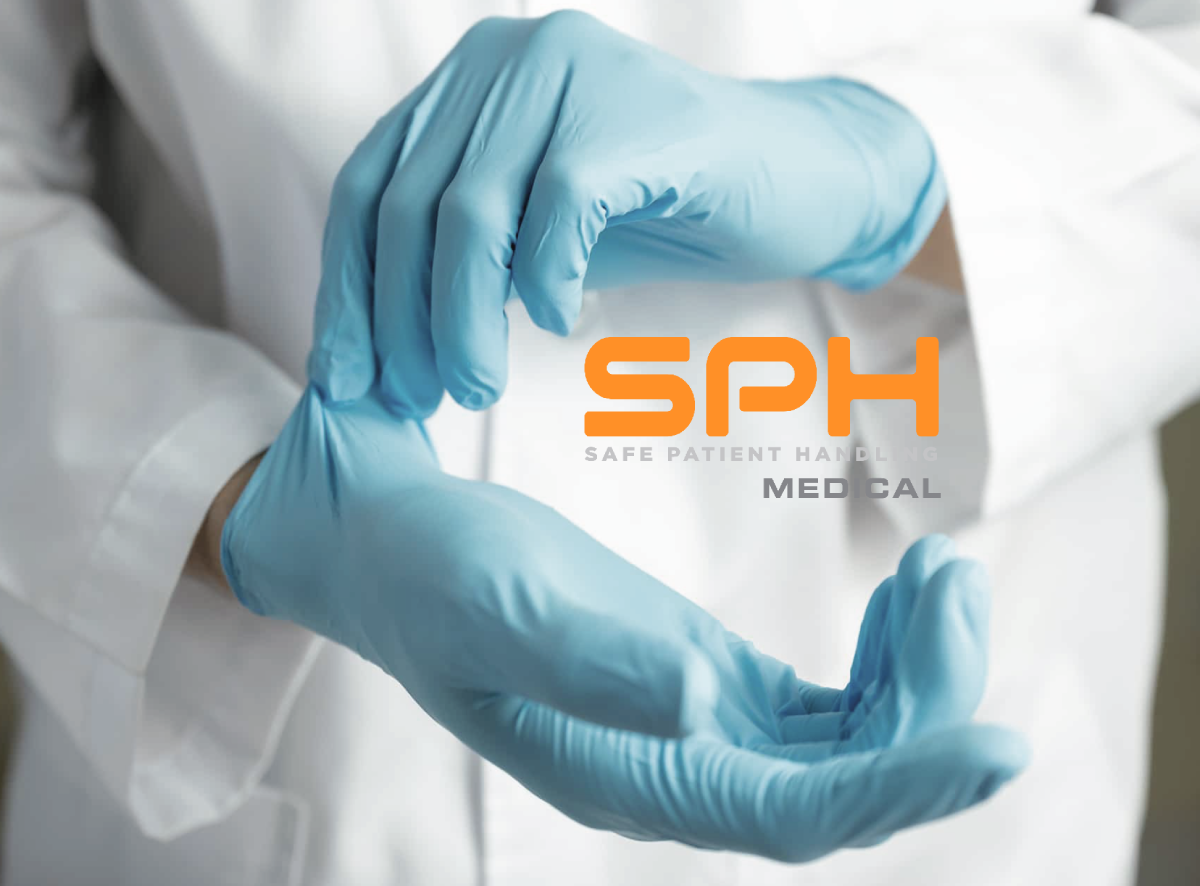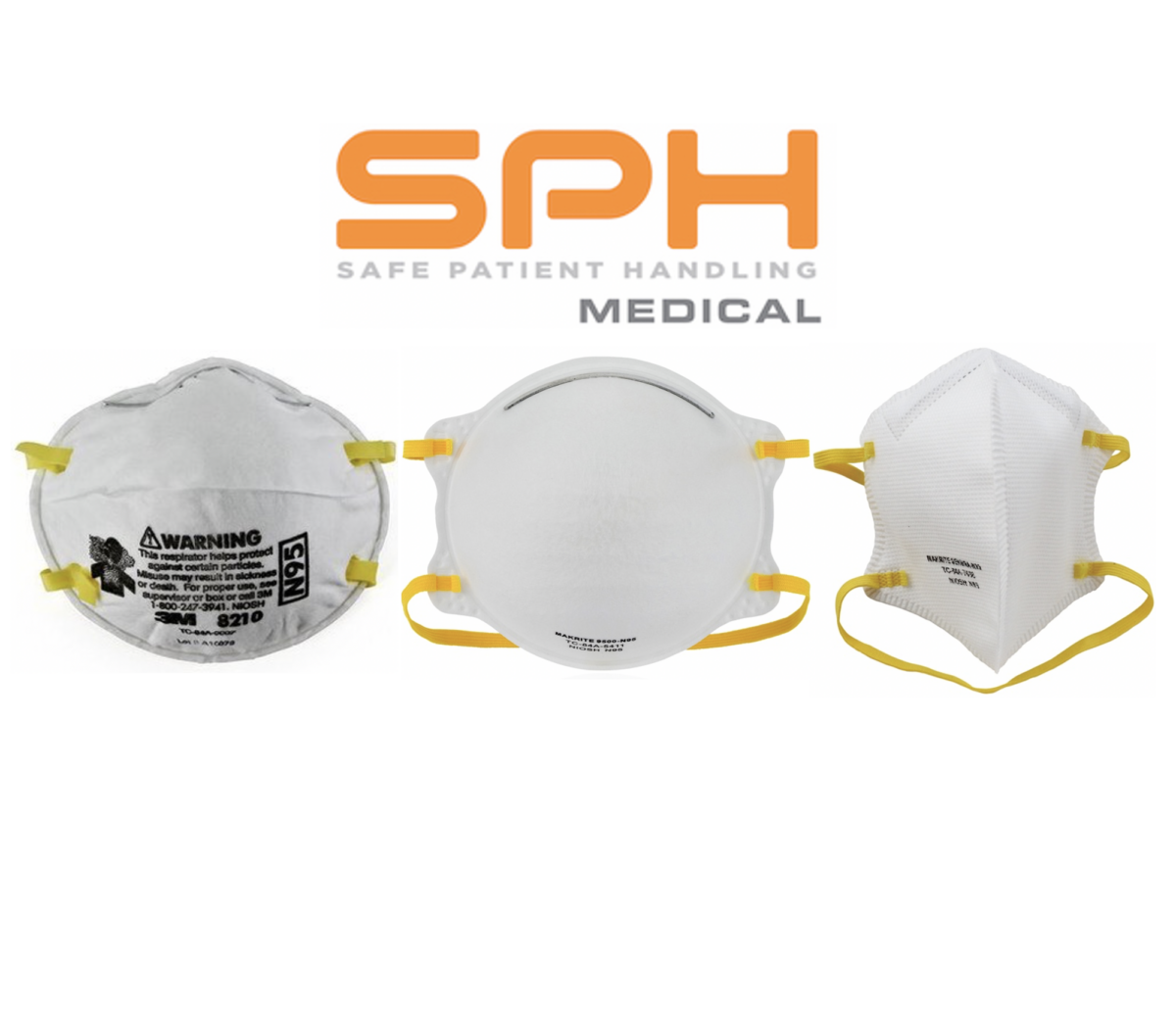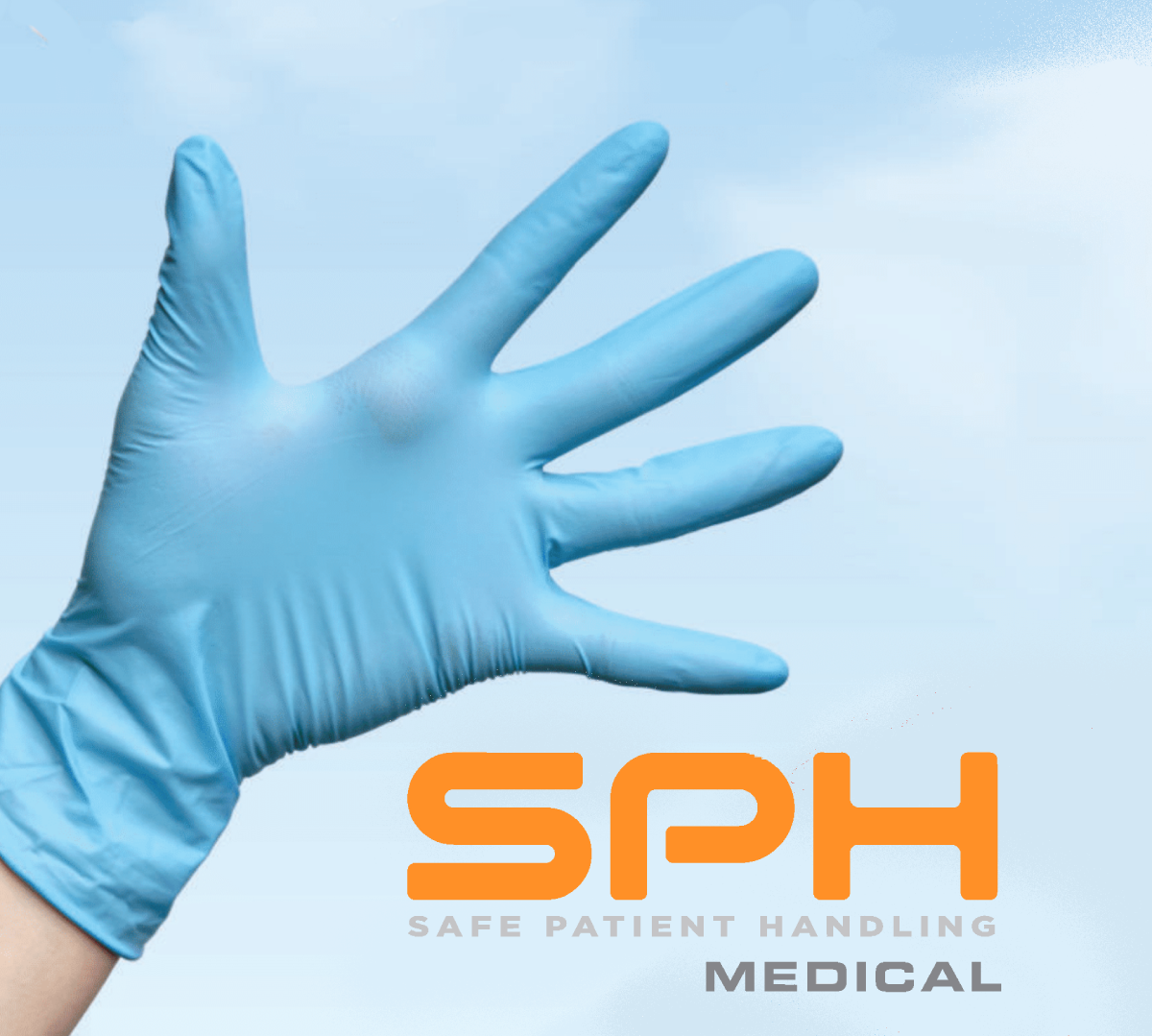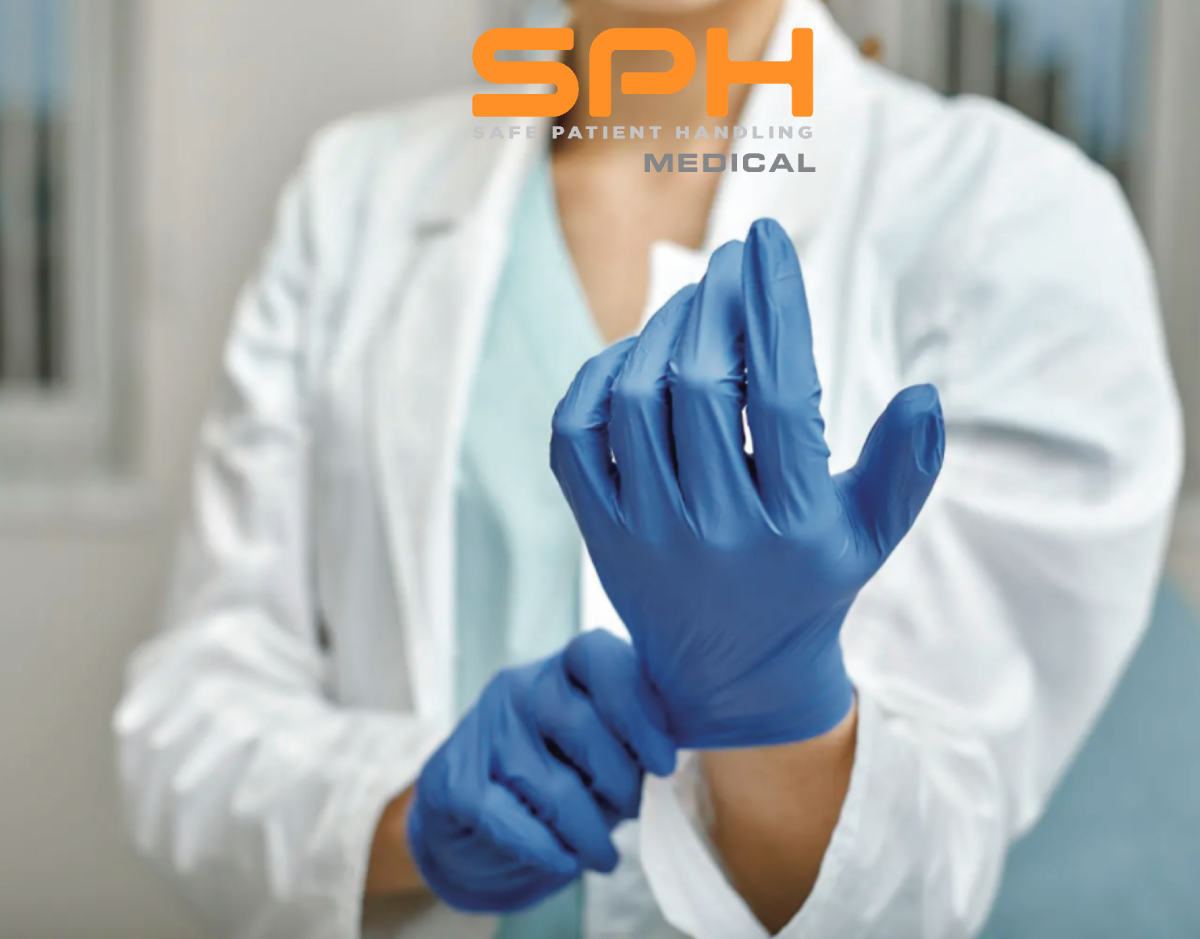NIOSH certified N95 Masks, and Nitrile Exam Grade gloves are personal protection equipment (PPE) to provide safety for medical staff and people in a variety of different settings. N95 masks are designed to preventing particles and in some cases liquids from coming into contact with your mouth and respiratory system. Nitrile Exam Gloves are an essential layer of protection to prevent hands from coming in contact with fluids, drugs and other pathogens, even protection from needles. When it comes to preventing the spread of microorganisms, bacteria and viruses, it is necessary to use interventions from all levels of control. Since COVID-19, the trend for personal protection equipment has spiked. In this article, we will discuss face mask options, growing trends and what the future look like for PPE.
A Protective Face Mask
Typical face masks are products worn on the face to cover the mouth and nose. The primary purpose of a face mask is to provide some level of filtration to prevent breathing in small particles of dust or as in the case of the recent pandemic airborne pathogens. At the onset of the Covid-19 pandemic cloth face coverings exploded as everyone scrambled for some level of personal protection. However we eventually learned that the generic cloth masks really offered very little protection as a filtration device. Cloth face masks, do not replace N95 respirators or other Filtering Facepiece Respirators (FFRs) that have been tested to define their actual filtration level.
Surgical Masks
A surgical mask is a disposable, loose-fitting device worn to protect the wearer’s mouth and nose and certainly their lungs from external contaminants. To clarify the surgical mask described here is the 3ply or 4ply typically blue but sometimes green mask worn by healthcare workers during patient care. Traditionally a surgical mask in the hospital would have a 4 tie configuration or ear loops. This type of disposable filtration device is typically tested at 95% – 98% filtration levels but is not the same as an N95 respirator. It does provide filtration but does not have the same seal around the nose and mouth, nor does it typically have the dual head bands that are required by NIOSH to qualify as an N95.
There are different types of surgical masks, some have a documented level of fluid resistance that can be critical in a surgical environment. The purpose of surgical masks is to block large particles from reaching the mouth. Sprays, droplets, splashes, and splatters may contain germs, such as bacteria and viruses. Masks may also reduce the exposure of respiratory secretions and saliva to others. Even though a surgical mask does block certain contaminants, it does not block or filter very small particles. And due to the loose fit between the mask’s surface and your face, surgical masks do not offer complete protection against germs and other contaminants. Today you will often see healthcare providers wearing both an N95 respirator and a surgical mask over it. This way the surgical mask can protect the N95 mask from exposure and the surgical mask can be thrown away. In a healthcare environment is not recommended to use a surgical mask more than once. The mask should should be removed after potential exposure or damage, thrown away, and replaced with a new one. After disposing the mask properly always wash your hands.
N95 Respirators
N95 respirators are protection devices designed to fit snugly around the face and to filter airborne particles effectively. The respirator form seals around the nose and mouth. Surgical N95 Respirators are part of the N95 Filtering Facepiece Respirators (FFRs), also called N95s. The N95 respirator is commonly used in construction and other industrial settings where dust and small particles are present. Several regulations regulate their use: -National Personal Protective Technology Laboratory (NPPTL) – National Institute for Occupational Safety and Health (NIOSH) -CDC However, there is a growing trend since COVID-19 that has increased its use in the Healthcare field. Particularly, respiratory protective devices that are single-use, disposable, and worn by healthcare personnel during procedures. As a result, both the patient and the healthcare personnel are protected from body fluids microorganisms and particulate material.
Nitrile Exam Gloves
The Nitrile Examination Grade gloves play a vital role in every hospital’s safety program and are worn by many hospital employees. The gloves are a type of personal protective equipment that protects against contact with blood, urine, stool, needles, viruses, bacteria, and other serious health risks. In addition to Nitrile Gloves there are a variety of other materials available that may be considered viable alternatives for hospitals but none typically offer the same level of fit and protection that Nitrile gloves offer. Exam gloves and come in a wide range of sizes and styles including a variety of colors and thicknesses. One of the critical considerations for hospitals is the testing against Chemotherapy Drugs. Every box of gloves should be labeled with the Chemo drugs that they have been tested against and the resistance time. This important information informs the nurse, doctor, or technician about the level of protection they will have when handling these dangerous drugs. Another important consideration is testing against Fentanyl Citrate now one of the most dangerous opioids that can be absorbed through the skin quickly and cause an overdose. To avoid confusion among staff about which glove to choose, hospitals prefer to standardize on a single glove that meets the specifications of the SPH Medical Safeko Nitrile Exam Gloves, Gen-X Nitrile Exam Glove, both1 with Chemo Drug testing.
Nitrile Exam Gloves and N95 Masks FAQ
Where can I purchase a Makrite N95 Mask, NIOSH N95 Mask, and Nitrile Exam Grade gloves? SPH Medical is a global distributor and trusted source for Makrite Industries. The company offers a variety of N95 mask options and Nitrile Exam Gloves online now at sphmedical.com. Makrite N95 respirators are not sold on Facebook or through online retailers like eBay, nor do we sell to individuals directly. The entire current production capacity is dedicated to industrial and healthcare customers. How do I know a NIOSH respirator is approved? To identify NIOSH-approved respirators, look for the NIOSH approval number shown on the mask and the packaging. A NIOSH logo will be found on the packaging. The fit testing instructions will also be found on the packaging. Ear loop style masks are not NIOSH approved. All N95 respirators that receive NIOSH approval have dual elastic headbands that enable the mask to achieve a proper fit without leakage. Who needs to wear a surgical N95 Respirator? A surgical N95 respirator is typically only used by healthcare professionals who need to protect themselves from fluids and any other airborne liquids. These respirators may be used outside of healthcare facilities but the standard N95 respirator offers the same level of filtration against dust, pollen, bacteria and viruses between 0.1 and 0.3 microns in size.

